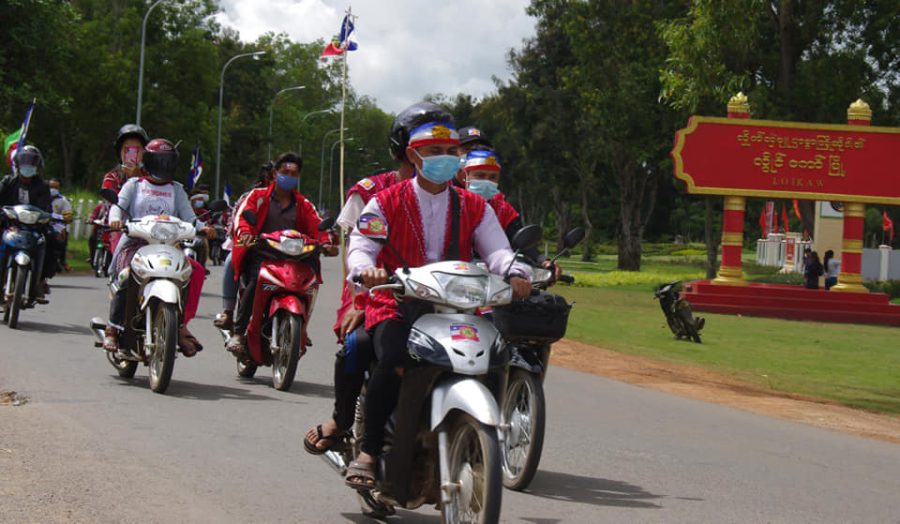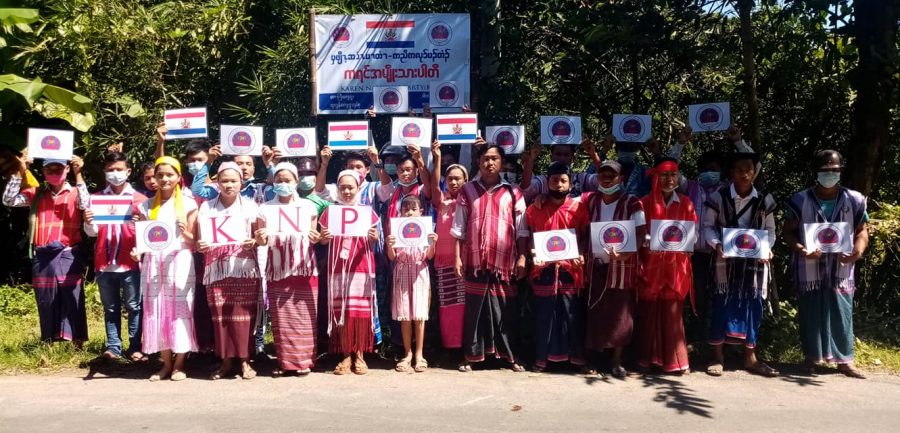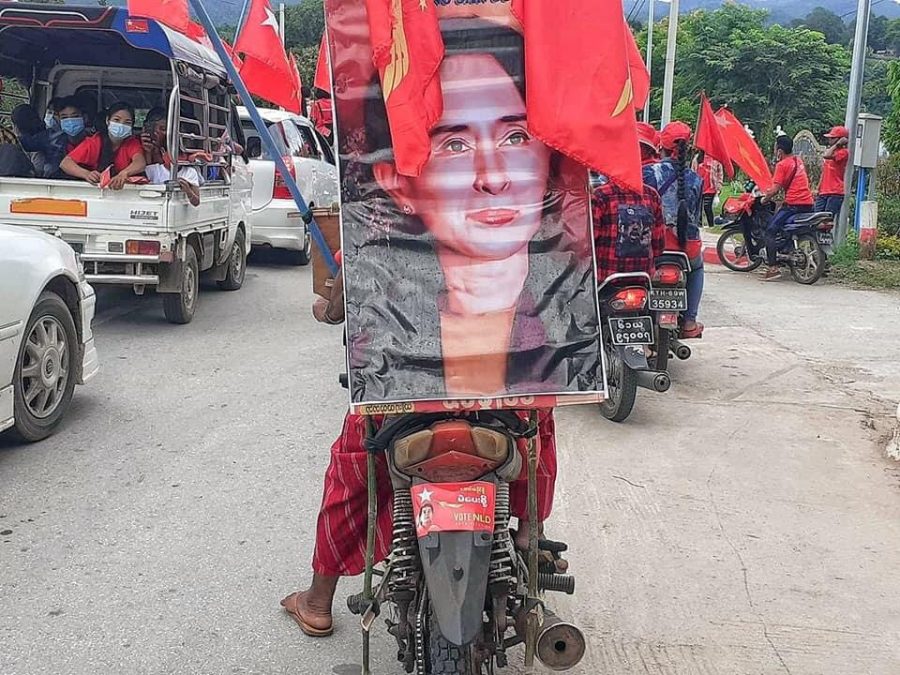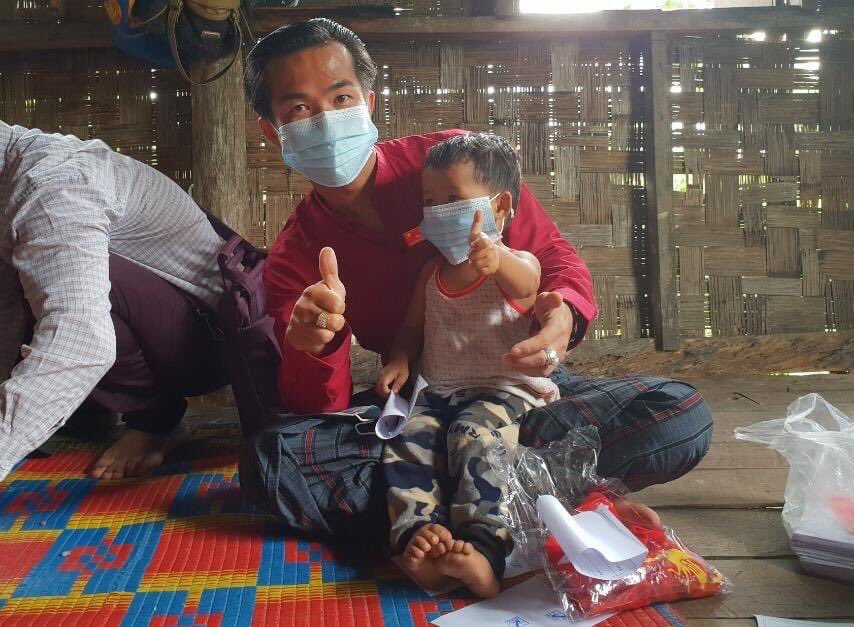With just over 300,000 residents, Kayah State is Myanmar’s least-populated state. But it has witnessed more than its share of political hot potatoes—from controversy over statues of General Aung San, which have been erected against the wishes of local people, to the impeachment and dismissal of the Kayah State chief minister—under the National League for Democracy (NLD) government.
With those issues in mind, it will be worth watching to see which party wins the general election in November in Kayah State and whether the NLD will be able to repeat its electoral victory.
Electoral landscape
Kayah State is made up of two districts divided into seven townships, with a total of 34 constituencies. With 13 political parties and 13 independent candidates, a total of 272 candidates are running in the election. According to the Kayah State Election Sub-commission, more than 207,000 people are eligible to cast votes in November, an increase of more than 29,000 compared to the 2015 election.
Of the 13 political parties, five—the ruling NLD, the military’s proxy Union Solidarity and Development Party (USDP), the Union Betterment Party (UBP), the National Democratic Force and the United Democratic Party, whose chairman has been arrested as a fugitive from justice—will run in all the constituencies.
The eight other parties are the Kayah State Democratic Party (KySDP), the Kayan National Party (KNP), the National Unity Party, the Democratic National Party, the People’s Party of Myanmar Farmers and Workers, the Shan Nationalities League for Democracy, the Karen National Party and the Pa-O National Organization.
A total of 34 seats are up for grabs in Kayah State—seven in the Lower House, 12 in the Upper House, 14 in the state parliament and one post for ethnic affairs minister.

Learning from past follies
Taking lessons from the 2015 election, ethnic Kayah parties say they will run in different constituencies to prevent the splitting of votes between the parties in a single race.
The KySDP will run candidates for 30 seats and the KNP will run candidates for four seats. Leaders from the two parties expect that their cooperation will win greater support from local ethnic people and civil society organizations.
Established in May 2010, the KNP fielded candidates in six constituencies in the general election that year and secured an ethnic affairs minister post and a seat in the Kayah State parliament. In the 2015 election, it lost in all 10 constituencies in which it contested.
In a significant change from previous elections, 12 of the 34 candidates fielded by the KNP and KySDP are activists from local civil society organizations (CSOs) engaged in the fields of peace, development, politics and legal affairs.
Khu Theh Reh, general secretary of the KySDP, said, “As we selected candidates we sought faces familiar to the people, those who have been continuously engaged with the public. Voters have greater interest in our party compared to 2015. Our decision to ally [with the KNP] has become a major advantage for us.”
Challenges for the NLD
Of 34 seats in Kayah State, the NLD won 26 in 2015. The USDP won seven and an independent candidate won one in that election.
However, the November election poses a significant challenge for the NLD, with unresolved land confiscation issues, a stalled peace process, and instability within the state government over the past five years.
The NLD’s Kayah State campaign manager, U Soe Yarzar Win, said in a recent online discussion with party chairwoman Daw Aung San Suu Kyi that even though Kayah State is the smallest in size, it poses the toughest challenge to the NLD.

There has been high political tension between the state government and local young people since the state government erected a statue of General Aung San in Loikaw against the wishes of local residents. The government then carried out a crackdown on people protesting against the statue, arresting and imprisoning them.
The state government’s activities have made many Kayah young people turn their backs on the NLD, which they overwhelmingly supported in 2015. Some six months ago, Kayah youths made it clear at the Karenni State Youth Forum that they would support and vote for Kayah ethnic parties in 2020.
When the campaign period began, thousands of Kayah young people held mass rallies in support of ethnic Kayah parties based in the state.
Many of the KySDP and KNP supporters and some of their candidates had actively campaigned for the NLD in the 2015 election.
Ko De D, also known as Sitt Mone, was one of those who previously campaigned for the NLD. But after five years under the NLD government, he feels frustrated and now believes local people must take control of their own destiny rather than relying on others. He is running on the ticket of the KySDP for a Lower House seat representing Hpruso Township.
He said he had hoped in 2015 that the NLD would perform better both in terms of regional development and promotion of ethnic rights, but after the NLD gained power it just ignored the wishes of local people.
The challenge facing the NLD is not only that some of its supporters have changed sides, but also that its rivals have formed an alliance to prevent splitting the ethnic vote. In 2015, there were three Kayah parties, as the All Nationals Democracy Party and the Kayah Democracy Unity Party had not yet merged to become the KySDP.
In 2015, NLD chairwoman Daw Aung San Suu Kyi’s involvement played a crucial role when it came to the party’s victory in Kayah State. But political analysts note that campaign restrictions due to COVID-19 have kept the chairwoman from the campaign trail, weakening the NLD’s chances for victory.
Races to watch
One of the most interesting constituencies in Kayah State is Bawlakhe Township. The township has the largest number of military battalions in the state. In the 2015 election, U Soe Thein, who was the President’s Office minister under the U Thein Sein government, ran as an independent candidate and won the election there.
Now an Upper House lawmaker, he will seek re-election in Bawlakhe, this time on the ticket of the USDP.
The NLD is fielding Sai Lin Lin Oo, a 29-year-old candidate, to compete with U Soe Thein. He is on the executive committee of the NLD’s Bawlakhe chapter and has served as its information officer since 2014.
He worked as a reporter and an editor for the local news agency, Kantarawaddy Times, and is the chairman of Maw Co, which produces organic fruit.

Sai Lin Lin Oo said he is facing a huge challenge, since his USDP opponent has a strong background and the party won both elections in 2010 and 2015.
Because Bawlakhe and western Hpasawng are strongholds of U Soe Thein and the USDP, it would also be difficult for ethnic parties to grab the seat, said Ko Kyaw Htin Aung from the Loikaw-based Lain technical support group.
The races could be tight in Loikaw, which is the administrative capital of Kayah State and has the largest number of voters with 97,000 people among seven townships; in Hpruso, where the KySDP won in the 2017 by-election, and in Shadaw where there are only some 2,000 voters.
Ex-Kayah State Chief Minister L Phaung Sho from the NLD, who won the election in Mese in 2015 and was elected chief minister, will seek re-election from there, and it will be interesting to see if he will be able to win again. In September, he was dismissed by the President’s Office as the chief minister following his impeachment by the state parliament. He remains an NLD member, however.
Potential outcomes
Though things have changed now, there are still many Kayah ethnic people who support the NLD and the party will win the 2020 election, according to National League for Democracy Central Information Unit Secretary Monywa Aung Shin.
Ko Kyaw Htin Aung said the NLD may not be able to repeat its 2015 victory due to land issues and the stalled peace process, as well as tensions and instability over the past five years.
The NLD may lose some of the 26 seats it holds currently, and the KySDP is likely to grab most of those seats, he suggested.
It is also likely that votes may split between financially strong parties like the UBP led by ex-General U Shwe Mann, the UDP and the NUP, which managed to a secure a certain percentage of votes in 2015 poll.

The USDP is also working to retain seven seats it won in 2015. USDP Kayah State chapter secretary U Htay Yel said the USDP is likely to win in Bawlakhe Township.
U Htay Yel himself will contest in Shadaw Township for a seat in the Kayah State parliament.
“The youth prefer ethnic parties. But seniors prefer the USDP, which can really build peace,” said U Htay Yel.
KNP chairman Khun B Htoo is optimistic. “This time people will not cast their votes for a particular party, but will consider the capacity and qualifications of individual candidates.
Our candidates have the advantage,” he said.
In 2015, NLD chairwoman Daw Aung San Suu Kyi asked voters to support her party without considering the abilities of individual candidates.
Ethnic parties have received a warmer welcome from local people during the campaign, but compared with the major parties they still face challenges, Khun B Htoo said.
“Some voters are easily swayed when parties pay them money or other things. We have challenges in such places. Because we are not as financially strong as other parties; this has been a challenge for us,” he said. He said he expects the party win over 50 percent of the contested seats because of its efforts.
You may also like these stories:
Myanmar’s Election Body Dissolves United Democratic Party Over Illegal Funding
Despite Some Progress by NLD on Rights, Myanmar Muslims Hope for More After Election
Detained Political Party Boss Found to Breach Myanmar Anti-Money Laundering Law, Among Others

















